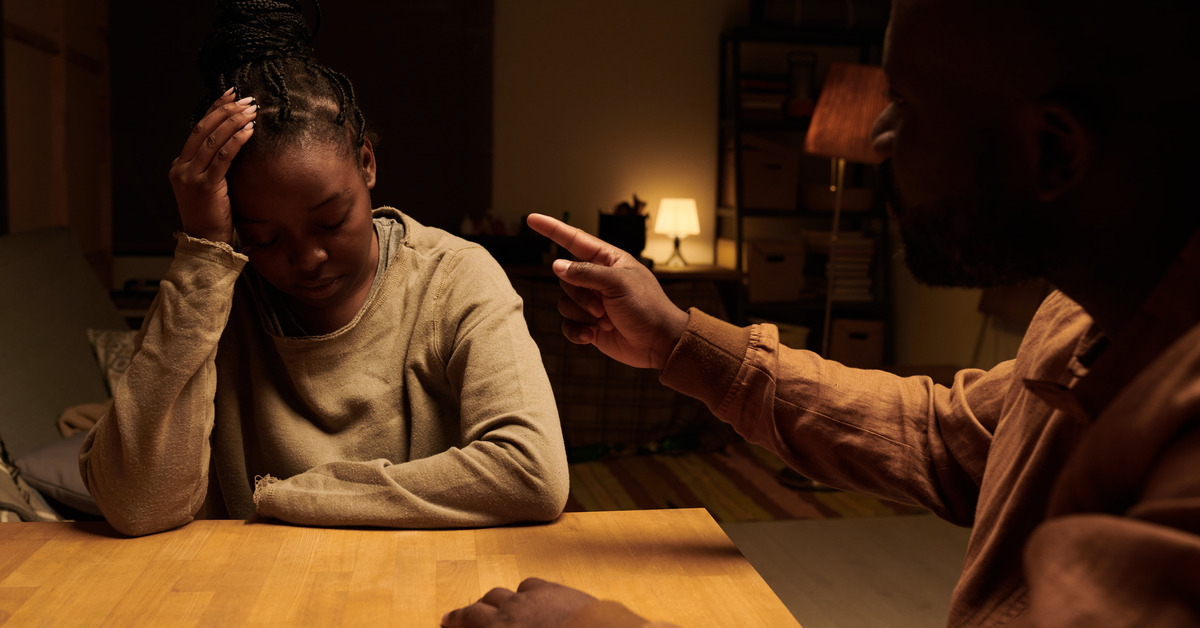The Struggles of Harassment Victims: What Is Victim Blaming?

The hesitation to report incidents of harassment, typically harassment that’s sexual in nature, often stems from a multitude of fears and societal pressures.
The fear of not being believed or being blamed for the incident itself, a phenomenon known as victim blaming, further discourages people from coming forward.
This can manifest in various forms, from questioning a victim’s choices to outright denying the validity of their experiences. By highlighting the nuanced struggles of harassment victims and the pressure of victim blaming, we hope to foster a more empathetic and supportive environment for survivors.
What Is Victim Blaming?
Explanation and Examples of Victim Blaming
Victim blaming occurs when another person shifts the responsibility for the wrongful act from the perpetrator to the victim. Often, society focuses on questioning a victim’s attire, their location at the time of the incident, or their behavior rather than addressing the actions of the harasser. This line of inquiry invalidates the victim’s experience and perpetuates harmful stereotypes and misconceptions.
For instance, assuming that a victim’s choice of clothing provoked the harassment or believing that being in a certain place at a certain time means the victim was ‘asking for it’ are classic examples of victim blaming. These attitudes contribute to a culture of silence and shame, where victims may feel isolated or afraid to speak up.
Impact on Victims: Why It’s Detrimental
Victim blaming can have profound psychological and emotional impacts on individuals who have already endured trauma. Blame exacerbates feelings of shame, guilt, and self-doubt, leading victims to internalize the negative perceptions of others. This can significantly hinder their healing process and leave lasting scars on their mental well-being.
Furthermore, the fear of being blamed or not believed might prevent victims from seeking the help and support they need. Society must foster an environment where victims feel safe and supported in sharing their stories. By shifting the narrative to emphasize the validation of victims’ experiences, we can work to dismantle the barriers imposed by victim blaming and encourage a culture that promotes healing and justice.
The Role of Society in Perpetuating Victim Blaming
Cultural Narratives and Stereotypes
Cultural narratives and stereotypes often underpin and perpetuate the cycle of victim blaming, normalizing harmful assumptions about harassment victims. These narratives may dictate rigid and unrealistic expectations of behavior, particularly for women, enforce gender roles, and promote myths that undermine the legitimacy of victims’ experiences.
For example, the stereotype that ‘good’ individuals should be able to avoid dangerous situations places unjust responsibility on victims, ignoring the reality that harassment is never the fault of the victim. Moreover, these cultural attitudes can vary widely across communities, cultures, and even religions, often deepening the stigma and isolation felt by victims from diverse backgrounds. We, as a collective, must challenge these ingrained beliefs. Culture or tradition is never an excuse for abuse and harassment.
Influence of Social Circles and Communities
The attitudes and beliefs prevalent within social circles and communities play a critical role in either reinforcing or dismantling the cycle of victim blaming. Friends, family, and community leaders often serve as the primary support systems for victims, and their reactions can deeply influence how a victim processes their experience and seeks help.
When these circles express skepticism or blame, it can isolate victims and intensify their sense of shame and self-doubt. Conversely, when communities are understanding and compassionate, they can offer the validation and support necessary for healing. Individuals within a victim’s circle need to recognize the invaluable importance of actively listening, refraining from judgment, and providing a safe space for victims to share their experiences without fear of blame.
Breaking the Cycle of Victim Blaming
Importance of Education and Awareness
Education and awareness are pivotal in breaking the cycle of victim blaming and fostering a supportive environment for survivors of harassment. Informative campaigns and educational programs that address the myths and stereotypes surrounding harassment can serve as powerful tools in reshaping societal attitudes. By fostering a deeper understanding of the dynamics of harassment and dismantling ingrained biases, we can challenge the misconceptions that contribute to victim blaming.
Introducing empathetic perspectives in schools, workplaces, and communities encourages individuals to scrutinize their preconceived notions and become allies in advocating for victims’ rights. Additionally, awareness initiatives can provide essential information about resources available to victims, empowering them to seek support without fear of blame or disbelief.
Role of Bystanders and Allies
Bystanders and allies hold significant power in changing the narrative around victim blaming and providing support to those affected by harassment. Being an ally involves more than just a passive agreement with victims; it requires active engagement and a commitment to fostering a safer and more empathetic environment.
Bystanders can challenge victim blaming by calling out harmful comments or behaviors they witness, holding perpetrators accountable rather than shifting blame to victims. Allies can offer invaluable support to victims by listening without judgment, believing their experiences, and standing by them during their healing process.
Importance of Listening to and Believing Survivors
When survivors share their experiences, they take a brave step in seeking validation and support, often at the risk of encountering disbelief or blame. By listening with empathy and acknowledging the reality of their experiences, we can provide survivors with the affirmation they need to begin their healing process.
Approach these conversations without preconceived judgments or biases, allowing survivors to express themselves freely and fully. Belief and understanding aid in their healing and challenge societal norms that perpetuate victim blaming.
Building a Network of Support To Aid Recovery
A holistic support system can encompass friends, family, health-care professionals, and community organizations, each playing a vital role in providing comfort and guidance. Establishing trusting relationships with supportive individuals can significantly boost a survivor’s confidence and provide a sense of belonging. Encouraging survivors to connect with communities or groups that understand their experiences can also be healing, offering validation and collective encouragement.
Health-care professionals, including therapists and counselors, can guide survivors in navigating their emotions and developing coping strategies, while legal advocates offer essential resources and assistance in accessing justice. Providing survivors with information about local support organizations can be invaluable, highlighting avenues for both emotional and practical support.
At the Law Firm of Tamara N Holder, we want to be a part of your support network. We’re intimately familiar with the struggles of harassment victims and are passionate, resolute, and dedicated to ending victim blaming.
Our experienced team of sexual assault attorneys has successfully represented numerous clients in cases of sexual harassment and abuse. We understand the trauma, shame, and fear that survivors face when seeking help, and we’re committed to advocating for your rights while offering empathetic and personalized legal support.



